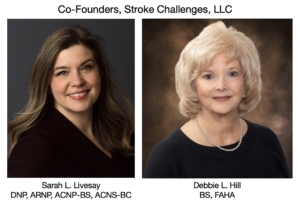 The 2025 International Stroke Conference (ISC) presented the stroke community with new science and key discussions on best practices in stroke care from across the globe. The late breaking science sessions presented several negative trials. However, studies that demonstrate no benefit to a particular intervention are still key to advancing science. The findings and subsequent discussion may still be impactful for patient outcomes. Additionally, they may be influencing practice in your organization, even before the final study is published. We will summarize several key findings from presented trials so you can review the published data or keep an eye out for follow up publications for those trials that were discussed but not yet published.
The 2025 International Stroke Conference (ISC) presented the stroke community with new science and key discussions on best practices in stroke care from across the globe. The late breaking science sessions presented several negative trials. However, studies that demonstrate no benefit to a particular intervention are still key to advancing science. The findings and subsequent discussion may still be impactful for patient outcomes. Additionally, they may be influencing practice in your organization, even before the final study is published. We will summarize several key findings from presented trials so you can review the published data or keep an eye out for follow up publications for those trials that were discussed but not yet published.Mechanical thrombectomy (MT) beyond large vessel occlusion (LVO): two studies presented at ISC, the ESCAPE-MeVO trial and the DISTAL trial examined the benefit of endovascular for medium vessel or distal vessel occlusions. For a quick rundown on the results, see the daily summary here (daily summary https://isc.hub.heart.org/isc-25/article/22932645/latebreaking-results-from-five-trials-presented-at-opening-main-event). While endovascular treatment was not beneficial in patients with medium or distal vessel occlusions, DISTAL researchers were encouraged that treatment did not result in any worse outcomes in those treated. Mortality and intracranial hemorrhage were similar in the groups treated with endovascular therapy and those who were not. Mechanical thrombectomy remains the standard of care for patients with LVO and additional data are needed to understand applications beyond LVT. See the initial publications from these two trials here (https://www.nejm.org/doi/10.1056/NEJMoa2408954) and here (https://www.nejm.org/doi/full/10.1056/NEJMoa2411668)
ICH treatment: trials in ICH management over the past few years focused on minimally invasive surgery, using small catheters for endoscopic surgery or stereotactic aspiration of the hemorrhage. Studies such as MISTIE II and ENRICH laid the foundational knowledge for these therapies. At ISC 2025, the MIND trial explored minimally invasive surgery in large ICH and found no improvement in longer-term outcomes. For a quick summary of the results, see the daily research brief here (https://isc.hub.heart.org/isc-25/article/22932645/latebreaking-results-from-five-trials-presented-at-opening-main-event). While longer-term outcomes were not improved, the study demonstrated improvement in shorter-term outcomes such as 30-day modified Rankin score (mRS) and several in-hospital outcomes such as intubation and ICU length of stay. Keep an eye out for the publication and further analysis of this trial.
Transradial angiography: The TRACE trial comparing transradial and transfemoral angiography access was also presented at ISC. Interestingly, treatment success rates were higher, and procedure time was lower in the transfemoral group. However, time in bed and pain scores were better in those treated with the transradial approach. No difference in complication rates was noted between the two groups. See the summary of ISC reported findings here (https://isc.hub.heart.org/isc-25/article/22932645/latebreaking-results-from-five-trials-presented-at-opening-main-event) and keep an eye out for the published trial to fully analyze the findings.
C3FIT: The C3FIT trial evaluated the benefit of coordinated post-stroke care to usual care in 21 hospitals across the United States. While the intervention did not improve mRS or quality of life at 12 months, they did find that the coordinated care significantly improved risk factor modification such as blood pressure control and adherence to recommended diet guidelines. See the summary here (https://isc.hub.heart.org/isc-25/article/22933026/latebreaking-trials-explore-issues-related-to-bp-care-statin-recovery-and-more). You can expect further analysis of the data and implications to be published in the coming months, as successful risk factor modification is still a significant and potentially impactful finding.
As you can see, while the word on the street was that this was a year of “negative trials”, studies that do not achieve their primary outcomes are still significant in advancing both patient care and subsequent research trials. Take a look at the studies as they are published so you can individualize the findings to your patient population and your program.

We hope you have a chance to connect with us at upcoming conferences.
Debbie will again be chairing the 11th Annual Stroke Business Summit in Chicago on June 12-13, 2025. She, along with the Patient PI, Barry Jackson, will be discussing the impact of the C3FIT trial results.


